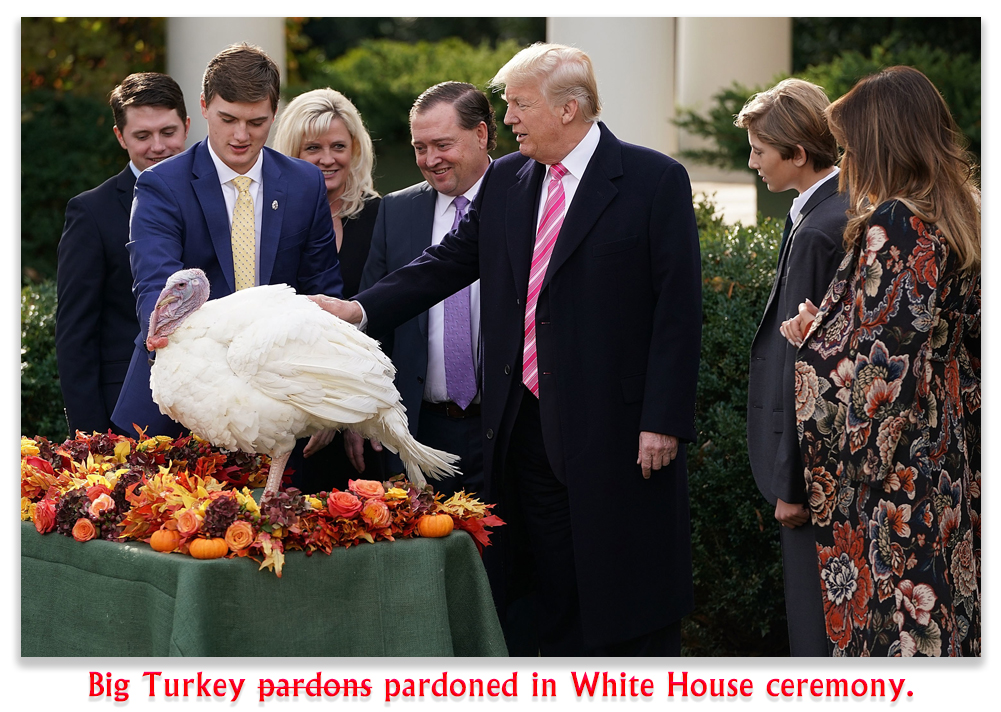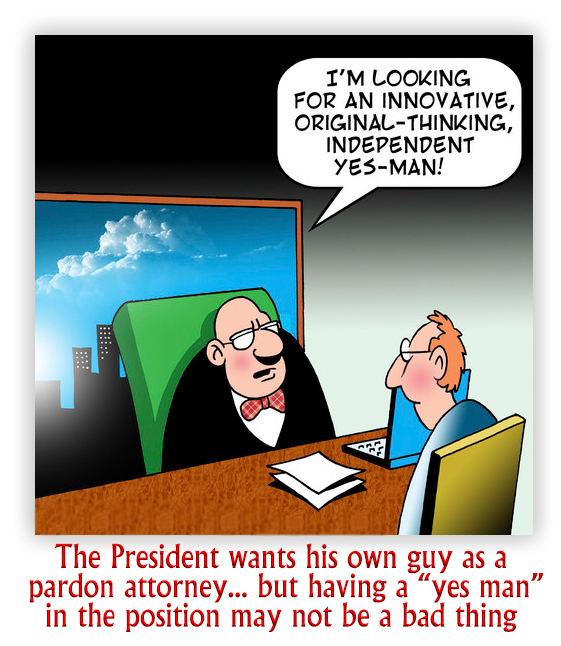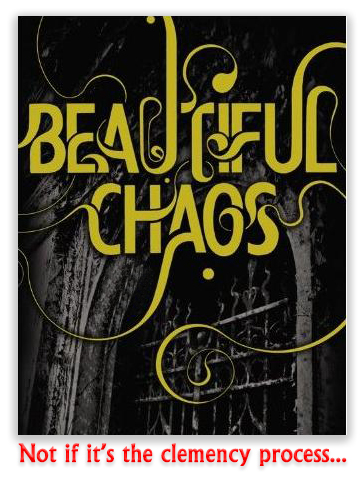We post news and comment on federal criminal justice issues, focused primarily on trial and post-conviction matters, legislative initiatives, and sentencing issues.

TURKEY (BUT NO PRISONERS) PARDONED
Predictably, President Trump pardoned a North Carolina turkey named Butter last week, but that was the extent of his Thanksgiving week clemency.
 Nevertheless, the Washington Examiner reported that many people with long federal sentences told it they hope Trump will make good on pledges to free inmates. Trump publicly asked three former prisoners last month for “a big list” of people to release. He said he was enduring his own injustice with impeachment proceedings.
Nevertheless, the Washington Examiner reported that many people with long federal sentences told it they hope Trump will make good on pledges to free inmates. Trump publicly asked three former prisoners last month for “a big list” of people to release. He said he was enduring his own injustice with impeachment proceedings.
“Give me the right ones… and as soon as you can, OK?” Trump said. “Because you know some great people that are going to be there for many, many years.”
“In November 2017, I wished I was Drumstick or Wishbone. Then in 2018 I wished I was Peas or Carrots,” said Alecia Weeks, a 42-year-old mother almost halfway through a 30-year sentence for dealing crack cocaine. Weeks said, “So far, the answer is, ‘Maybe, if I were a turkey.’ So, this year, I’m begging [Trump], ‘Gobble Gobble, please have mercy on me and my son! We will be forever grateful and make you proud.’”
Clemency advocates see Trump’s embrace as motivated in part by his own sense of persecution, beginning with special counsel Robert Mueller’s Russia investigation. But some note that the issue, pushed by his son-in-law Jared Kushner, has potential electoral significance, winning the enthusiasm of minority voters, some of whom now openly sympathize with Trump.
“President Trump is making ‘AMERICA GREAT AGAIN,’ and his message has reached so many of us inside prisons where I have been the past 31 years as a first offender,” wrote another prisoner, who was sentenced to 40 years for dealing crack. “It would be a great honor to personally thank President Trump if I were one of the chosen few to receive the same mercy as the two lucky turkeys that are guaranteed free range every year for the balance of their lives.”

Meanwhile, a number of prosecutors – who send people to prison every day but have never set foot inside an institution – are joining an initiative signed by about 40 of the nation’s most progressive district attorneys. The prosecutors are committing to visit prisons themselves, to send their staffs to do the same, and to incorporate such visits into mandatory training and job expectations.
Miriam Krinsky, executive director of the group Fair and Just Prosecution (FJP), that heads up the effort, said prosecutors have a special obligation to see the correctional system since they control the “front door” to the justice system. She hopes such visits broaden prosecutors’ perspectives and inform decisions on sentencing, bail and alternatives to incarceration. “No prosecutor should be putting people in places they haven’t seen or walked through,” Krinsky said.
Prosecutors signing on to the initiative include several state attorneys general and a number of local prosecutors. Thus far, no federal prosecutors have signed on.
Washington Post, The annual turkey pardon is one of the few norms President Trump has kept alive (Nov. 26)
Washington Examiner, ‘Maybe if I were a turkey’: Prisoners beg Trump to pardon them for Thanksgiving (Nov. 26)
Washington Post, They send people to prison every day. Now, they are pledging to visit (Nov. 25)
– Thomas L. Root


















 Berman wrote, “It is now been nearly a month since Prez Donald Trump commuted the life sentence of Alice Johnson at the behest of Kim Kardashian West. Immediately thereafter, there were reports of “a growing list of potential pardons or commutations under consideration by President Donald Trump” and Prez Trump himself said: “We have 3,000 names. We’re looking at them. Of the 3,000 names, many of those names have been treated unfairly.” A week later it was reported Prez Trump will be “pardoning a lot of people — pardons that even Obama wouldn’t do” and reported that Mrs. West had “assembled a large legal team and was pursuing clemency for several other nonviolent offenders.”
Berman wrote, “It is now been nearly a month since Prez Donald Trump commuted the life sentence of Alice Johnson at the behest of Kim Kardashian West. Immediately thereafter, there were reports of “a growing list of potential pardons or commutations under consideration by President Donald Trump” and Prez Trump himself said: “We have 3,000 names. We’re looking at them. Of the 3,000 names, many of those names have been treated unfairly.” A week later it was reported Prez Trump will be “pardoning a lot of people — pardons that even Obama wouldn’t do” and reported that Mrs. West had “assembled a large legal team and was pursuing clemency for several other nonviolent offenders.” 